Childcare Conversations
Outdoor Play, Risk and Challenge: an Interview with Kathryn Solly
Kathryn Solly, author of ‘Risk, Challenge and Adventure in the Early Years’ has taken a break from training childcare professionals to share her experience in the childcare sector as an advocate of outdoor learning, including her time as head of the Chelsea Open Air Nursery School and Children’s Centre.
Thank you for agreeing to chat with First Discoverers. First off, can you explain what initially drew you to the early years sector
I’ve had what I describe as an ‘accidental career’ as I was originally trained as a secondary teacher of Rural and Environmental Science. I went on Voluntary Service Overseas to teach agriculture, English and social science in Papua New Guinea for two years. This influenced and changed me dramatically. Thus, when I was offered a job teaching infants in an unorthodox but highly successful primary school I grabbed the opportunity. When I tell you that my class of 6/7 year olds were responsible for caring for two crocodiles you might wonder what might be the attractions of the post! Luckily my Papua New Guinea experiences and the fact that when I trained as a teacher everyone learnt about child development and learning plus the basics of the 3R’s were really helpful. The crocodiles, Shetland Pony, goats, 80 odd rabbits and an orchard full of wildfowl became my responsibility too. Thankfully I had excellent colleagues who nurtured the start of my fascination with young children. However, learning outdoors was central to the school’s ethos alongside real reasons for cross-curricular learning. These have remained mainstays for my practice and passions to this day.
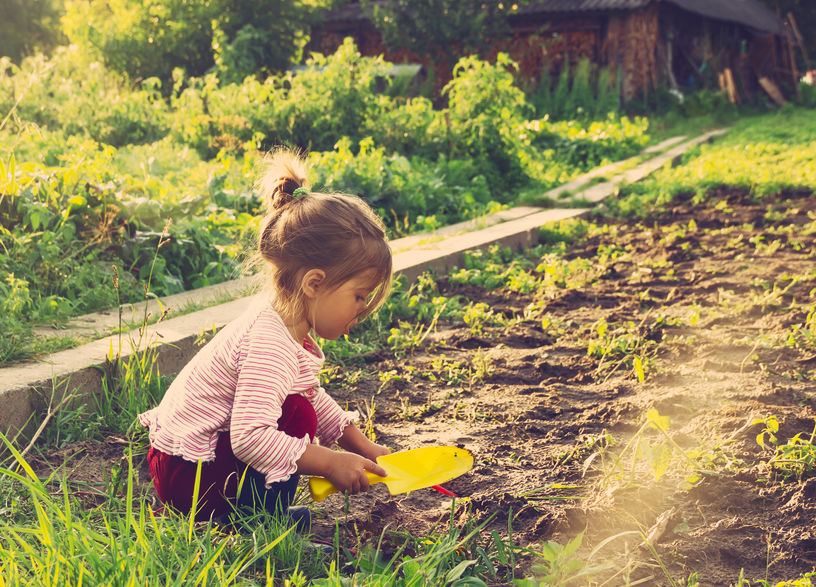
Becoming a mother to three children, (the first two a year apart ) also taught me much about the practicalities and challenges of early childhood and of being a parent. Our first son was born with a weakened immune system providing great insight into the needs of the unique child. Having three children has been enriching to my career, as have our two grandchildren.
Later I was offered a post in a maintained nursery school having run a pack-away setting at a tertiary college for parents to leave their children whilst attending courses. I would teach in the morning and retrain to become an early childhood teacher in the afternoons.
I have never looked back and fully understand that the foundations of lives are established in these earliest years. Early childhood is where it happens.
What skills would you say are absolutely vital for a childcare professional?
- A love and fascination of young children’s development, wellbeing, care and learning.
- The resilience to persevere; to learn and keep on learning; to make mistakes and bounce back.
- The ability to listen and observe with care.
- The openness to respect and value others with different views, backgrounds, languages, beliefs, ethnicities etc.
- The willingness to work hard indoors, outdoors, to get messy and cope in all weathers.
- A desire to learn more and in different ways.
- The common sense to accept that it takes time to change the world and we are all on a journey.
What would you say makes a successful childcare setting?
- Leadership which focuses on every unique child is safe and will be supported to develop via play and learning to achieve their full potential.
- Love, trust, care, inclusion and respect are central to quality partnerships and relationships alongside the involvement of caring adults who add rich and diverse role-models.
- A great team who are sensitively led and enabled to move forward through high-quality learning and professional development.
- High-quality learning and teaching through play.
- The essential provision of enabling environments indoors and out nurturing individual child motivations, schemas, ideas, dispositions and fascinations.
- It’s not about money but that does help. Wellbeing and creativity must be central alongside the drive to provide the very best for young children. Often there is simply too much staff control and paper documentation rather than a ‘less is more’ approach and the central importance of interactions, observation and genuine relationships.
In your view, what should children ‘learn’, or ‘gain’ from their time in early years care?
Children need the following in order to learn:
- time to develop at their own pace and explore their own interests;
- agency to have some choice over what they do and when
- belonging by being loved, cared for and valued as a part of a community gaining a perspective and respect of others’ views, diversity, attitudes and the rules of engagement
- competence and feeling successful.
What they learn should provide the firmest foundations for life-based upon experiences indoors and out (not just formal schooling). It will be unique to each child and therefore provision for learning should be embedded in their natural curiosity and desire to investigate using their senses and whole bodies. They are fully capable of concentrating for long periods of time when things interest them. Children need numerous opportunities to explore new ideas and concepts over time and in different ways using a range of creative and open-ended resources. Start from the child and follow their lead.
How has the childcare industry changed during the time you have been involved in the sector?
“our children go into formal school earlier than most of the rest of the world is … far from desirable in my opinion.”
It has expanded and contracted several times. The market forces unleashed by several governments have encouraged parents into work earlier and earlier but sadly not always considering the child at the centre. Once the voucher scheme started in 1996 children had funding attached to them and became commodities whom settings and schools were competing for.
I believe babies, in particular, need home-based care such as that provided by their families and childminders. Older children benefit from a wider group with more peers and a range of different adults in nursery-type provision. The most vulnerable children need the very best our society can provide. Sadly, the decline in the numbers of the very best childminders, children’s centres, day-care and maintained nursery schools are indicative of childcare being only seen as a business rather than an essential part of a well-developed society as is evident in other parts of the world. The fact that our children go into formal school earlier than most of the rest of the world is also far from desirable in my opinion.
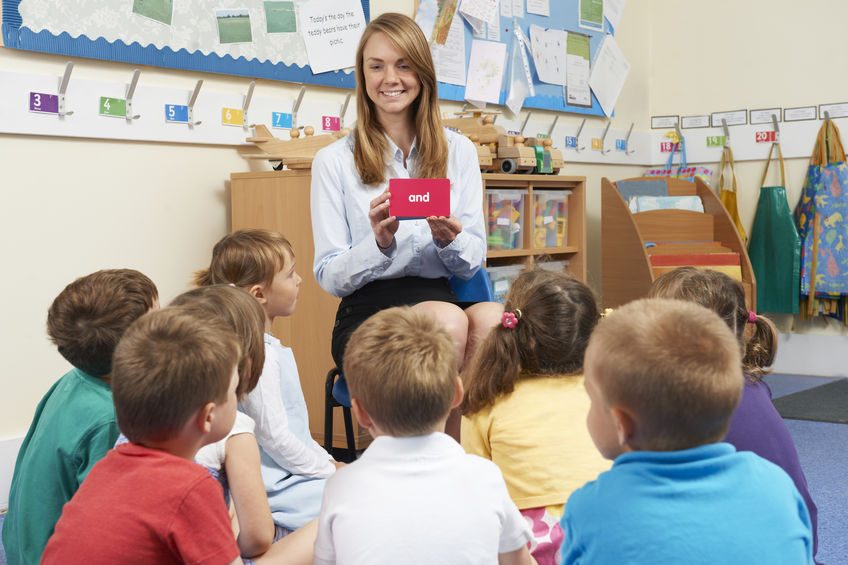
What would you say are currently the biggest problems that childcare settings face?
- The training, development and support of high-quality staff. The youngest and most vulnerable babies/children need the most highly trained and experienced staff not the least qualified.
- Setting education and care as essential for young children’s rights rather than a means of satisfying the demands of the world of work, industry and business.
- Ensuring we fund and provide only the very best schools and settings with high quality environments indoors and out from registration onwards.
- Negating the top-down pressure of formal schooling, resisting an earlier school starting age and the impact upon children’s rights to play, learn and develop naturally.
- That child development and child psychology are not being given a central focus in some childcare and teaching courses.
You were previously the head of Chelsea Open Air Nursery School and Children’s Centre, can you tell us about your time there and what makes it so unique?
Chelsea Open Air (COANS) is unique and quite a jewel in early childhood because of several reasons. It was a genuine privilege to be headteacher there for 17 years despite commuting at 5:30a.m. each day. We accrued a great deal of popularity and many accolades over those years due to having a highly committed and hard-working team and families who valued COANS and worked with us. To me it still remains a very special place, which I fell in love with.
“The children free-flow indoors and out at all times of the year and in all weathers”
It is based in a building which dates from 1587 and provides on entrance a child-sized scale like a family house. This opens out into larger internal and external spaces. The latter being particularly central to the ethos of openness. It was founded in 1927 with funding from Natalie Davies, an American benefactress who wanted a nursery for her two children. She persuaded Dr Susan Isaacs to oversee its establishment and running. Susan Isaacs and her husband Nathan were both involved in many ways. Isaacs brought in students from the then Institute of Child Development (now the Institute of Education) to train there too. In the 1970’s it became a state-maintained nursery school within the Royal Borough of Kensington and Chelsea. It sadly is no longer a children’s centre but for me it was the establishment of the children’s centre and year-round provision that really brought COANS into its greatest community role.
The ethos today however of openness, inclusion, diversity and respect for children’s learning choices remains a very strong feature. The children free-flow indoors and out at all times of the year and in all weathers. The adults follow their lead and support their needs and interests, extending and enhancing their learning, their dispositions, motivations and fascinations.
At what point in your career did you recognise the importance of outdoor learning?
It has always been there. I was an outdoor child and loved building dens, gardening, making fires, climbing trees and roaming in nature. Although my childhood was economically poor my outdoor experiences and access to interactions and books was rich.
“From the age of eleven, I really disliked school and teachers. I was often naughty and lazy.”
One day my biology teacher suggested I undertake a degree in Rural and Environmental Studies. All my teaching roles have involved being outdoors in nature with animals and plants since…. I never looked back. Now as a Froebel Trust Travelling Trainer and Early Education Associate and in my freelance work and writing I have numerous opportunities to engage and encourage others to experience the pleasures and benefits of being outdoors in nature.
A Complete Guide to Outdoor Learning and Play – Get it Now
How important is having access to adequate outdoor facilities and equipment to a setting, and what advice would you give to childcare professionals that perhaps find it difficult to access a natural environment?
- Access to outdoors I believe is crucial to ALL children from birth onwards. We should not be registering settings were going for a walk or to the park is the only option. Babies should be sleeping in prams in the open air as is the case in Scandinavia. They should be able to put their hands and feet into the mud as toddlers and so much more as they grow. I do wonder that society’s disconnection with the natural world and rise in mental health issues has arisen as we separate our children and ourselves in overheated, poorly ventilated indoor provision rather than enjoying the enrichment that being outdoors brings.
- Whatever your circumstances take children outdoors. They will learn from local walks from the weather, the seasons, the local community.
- Try gardening in containers and window boxes. Get an allotment or explore asking your LA for a small gardening bed to tend.
- Resources need not be expensive to provide. Follow a ‘less is more’ approach so that the children learn to respect the resources. Resource gathering will require some adult creativity and ingenuity for practitioners to collect, request and find. Learn to maximise walks, skips, car boots, charity shops, friends, neighbours and the community to collect things.
- From sticks, stones, shells, feathers and cones to planks, pipes, gutters and cable reels building up collections of usable items to explore having carefully considered and risk-benefit assessed them according to the age, stage and needs of the children provides the core material.
- Good and accessible storage so children have access to some items and adults retain more specialised items at a higher level is also essential. Big sheds are generally a nightmare unless divided with appropriate shelving etc.
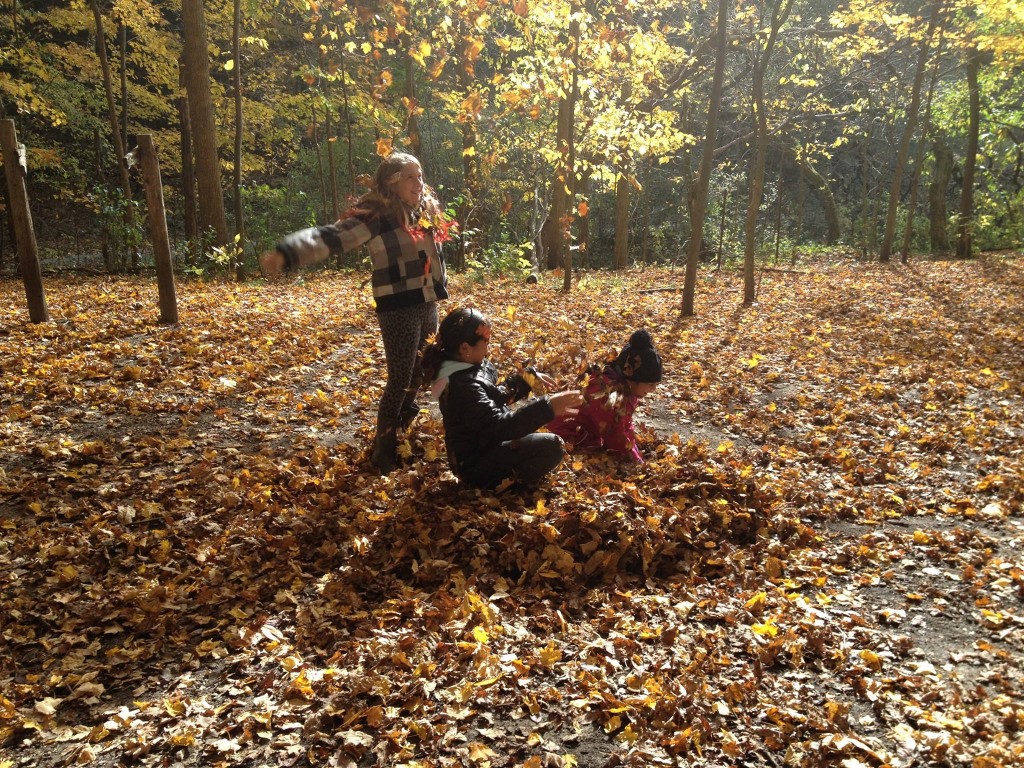
- If you have no direct access to outdoor space then research the local community and consider other options. Local parks, historic places, gardens within your community can offer possibilities. Remember if you don’t ask, you won’t get.
- Establish boxes or baskets of resources to be ready to use in different weather/seasonal conditions. Invest in a parachute and some physical play equipment. Build up containers for writing/art materials, books, a pop-up tent, small waterproof tarpaulins for seating and rain covers and consider a wagon so the core items can be pulled easily along to the outdoor site. Buy a few magnifiers and simple identification guides. Learn together.
- Invest in the best outdoor clothing for children and adults you can afford or better still, see if a local firm will sponsor it.
You have released a number of childcare books, your first being ‘Risk, Challenge and Adventure in the Early Years’ – could you give us a summary of the adult role when attempting to include risk and challenge in early years learning?
This is rather a challenge but here are a few tips:
- Start from the perspective of what will go right outdoors rather than the reverse. See the real possibilities.
- Do not hold hands during climbing and balancing movements unless asked.
- Never pick up and put a child somewhere they cannot get to themselves.
- Provide lots of physical development in different scales to build self- confidence.
- Never pressurise a child to try a challenge they are not yet ready for.
- Give physically timid and cautious children more time to explore as they see fit.
- Use phrases such as “How about you watch whilst …” or “I’ll stay right by you whilst you choose…”
- Practitioners are not responsible for making sure that no child ever gets hurt. The law demands we protect people as far as is “reasonably practical.”
- Thus, we must strike a balance between the child’s right and need to play and the possibility of them doing serious damage to themselves.
- The adult should assess the hazards by carrying out a risk-benefit assessment.
- Talk with parents, give examples and evidence from your experience about risky and challenging play and be patient.
- Do not promise what you cannot guarantee.
- Understand the different culture, background and previous experiences of staff and families and start from there.
- Let the child lead you and their family.
- Involve families as much as you can in learning.
- Create an Outdoor Play Policy, Expeditions Policy and consult their views.
- Avoid saying ‘Don’t worry!’
- Share risk-benefit assessments.
- Lead by example. (Leadership outdoors is the focus for the book I am writing at present.)
- Share skills teaching/progress via photos and DVD material.
You are currently a specialist Early Years trainer and consultant, what motivated you to make the switch from providing childcare to childcare education?
My mother was seriously ill and I wanted to spend time with her. Sometimes in life family must come first. After she died I was asked to speak at conferences and provide training so one thing led to another after completing my first book.
What would be your advice to anyone considering a career in childcare?
- Get the best training you can.
- Visit a range of schools and settings so you really understand what you are going to be involved in.
- Read widely.
- Observe children at play.
What makes you most passionate about the work you do?
Children and nature.
And finally, If you could choose just one, what would you say has been your best ‘I love my job’ moment?
Whilst teaching: Seeing children with complex special educational needs move, walk, and communicate with their peers. Seeing the joy in their families too.
Now: watching practitioners gain the confidence to excel outdoors working with young children.
We hope you have enjoyed this interview and are interested in more of our range of Childcare Conversation features.
Kathryn Solly, author of ‘Risk, Challenge and Adventure in the Early Years’, employs her 35 years teaching experience in nursery, primary secondary and tertiary education sectors to advise, train and motivate as a keynote speaker and trainer, specialising in outdoor play in the Early Years.
To find out more about Kathryn and her work you can visit her website Solly.Biz, follow her on Twitter at @SollyKathrynor check out her book ‘Risk, Challange and Adventure in the Early Years’.
Our Childcare Conversations series aims to showcase a cross-section of leading voices from the world of childcare talking about their roles, offering advice, comment and views on topical issues. This time around we’ve decided to shine the spotlight on outdoor learning and have chatted to several early years experts to gain their insight on the inclusion of the outdoors in child development.


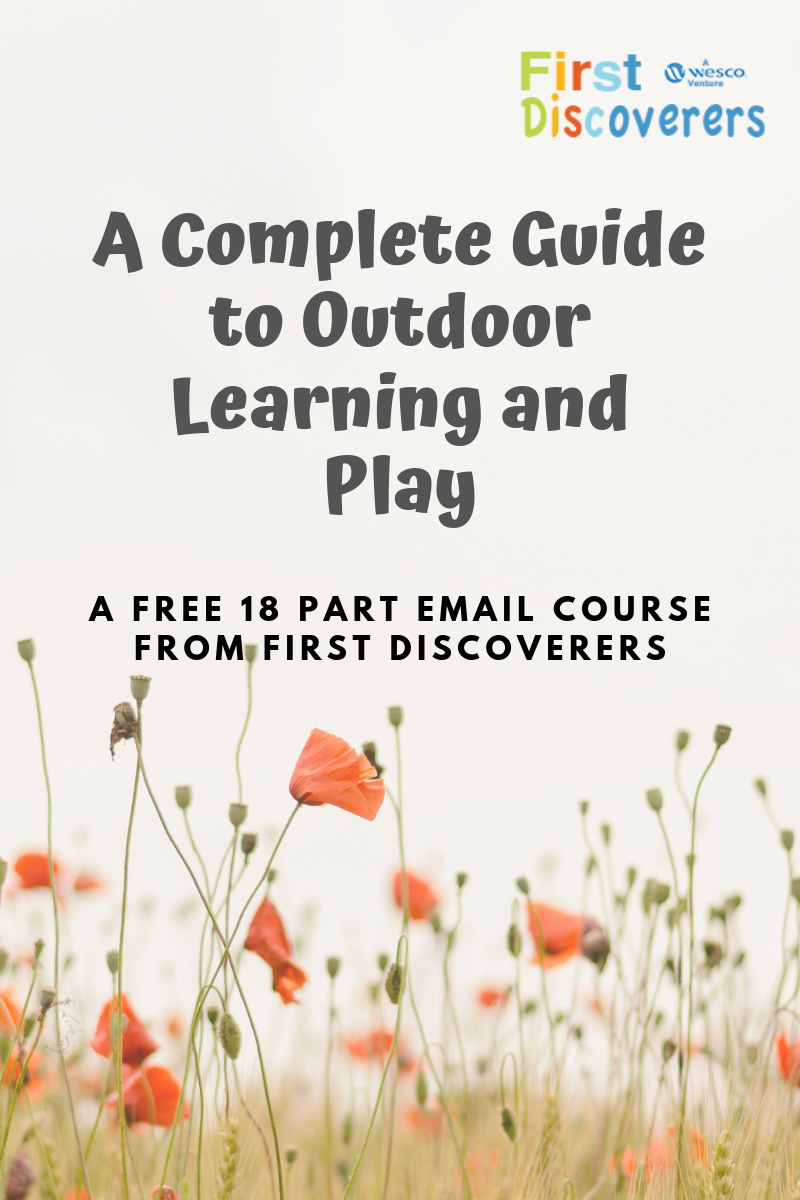
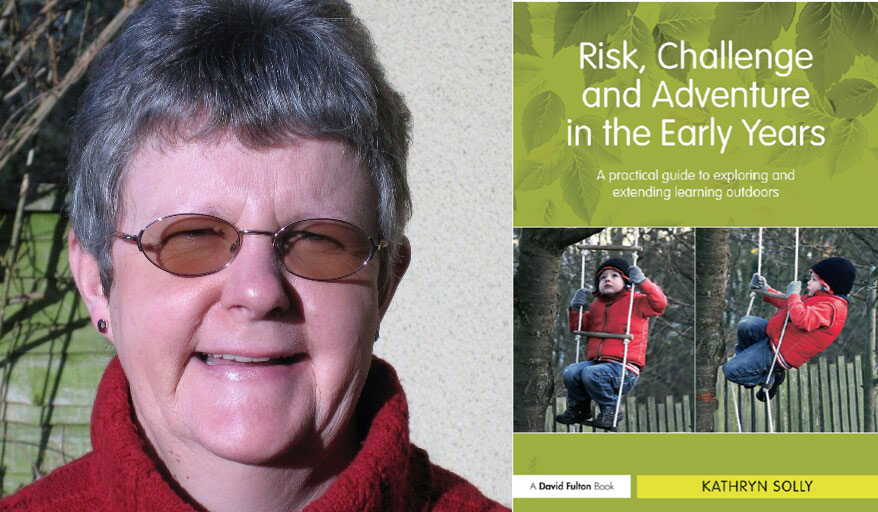

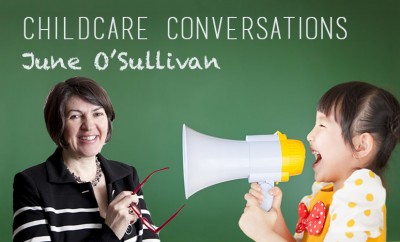

You must be logged in to post a comment Login